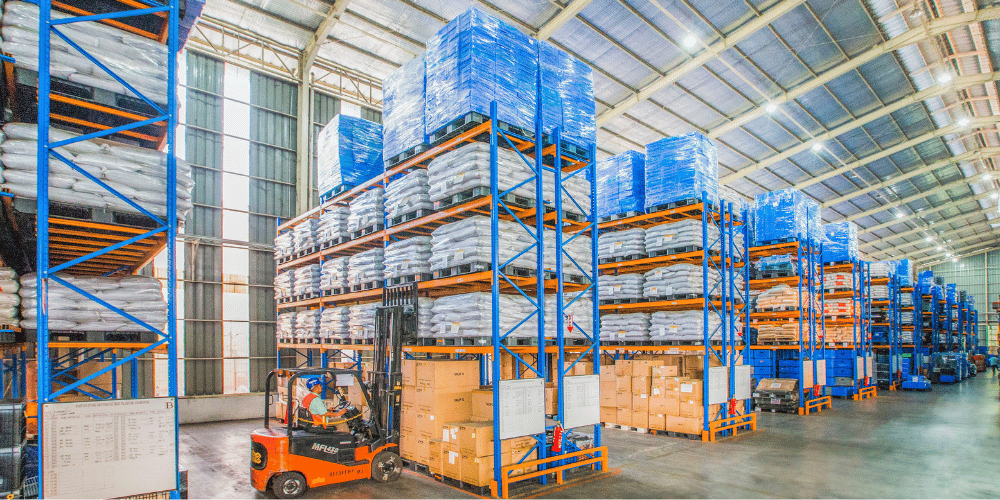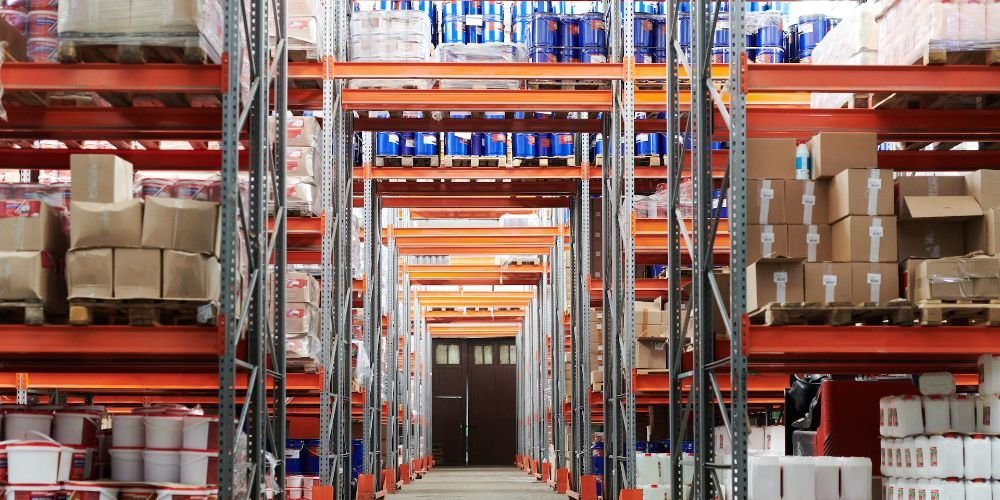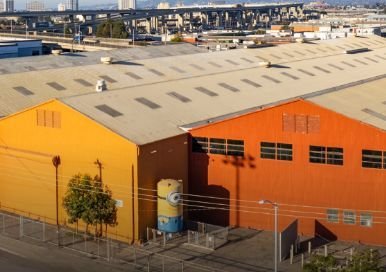
1229 Connecticut St.
San Francisco, CAPotrero Hill Creative Office & Warehouse

Warehouse logistics is a critical aspect of supply chain management that focuses on the efficient storage and movement of goods within a warehouse. As businesses strive for greater efficiency and customer satisfaction, understanding warehouse logistics becomes increasingly important. This involves optimizing storage solutions, inventory management, order fulfillment, and transportation to ensure seamless operations.
In today’s fast-paced market, effective warehouse logistics can significantly impact a company’s bottom line, making it a key factor in achieving business success and growth.
Warehouse logistics refers to the complex process of managing the storage, movement, and flow of goods within a warehouse.
It encompasses several key components:
Overall, warehouse logistics plays a crucial role in the supply chain, enhancing operational efficiency and ensuring timely delivery to customers.
Storage solutions are fundamental to warehouse logistics, involving various types of storage systems such as shelving and racking. Optimized storage solutions enhance space utilization, improve accessibility, and streamline operations.
Effective inventory control is critical, employing techniques like just-in-time (JIT) and ABC analysis. Real-time inventory tracking ensures accurate stock levels, reducing waste and preventing stockouts.
Order fulfillment involves multiple steps: picking, packing, and shipping. Technology, such as automated systems and software, plays a significant role in making this process more efficient and accurate.
Transportation management coordinates the movement of goods in and out of the warehouse. Efficient management of transportation logistics directly impacts delivery times and customer satisfaction, ensuring timely and reliable service.
Efficient warehouse logistics offer numerous advantages, enhancing both operational efficiency and customer satisfaction:
Despite its benefits, warehouse logistics can face several challenges:
While supply chains and logistics are interconnected, they focus on different aspects of business operations. Supply chain management oversees the flow of goods, services, and information from origin to consumer, involving coordination with suppliers, manufacturers, distributors, and retailers.
Warehouse logistics, however, concentrates on managing goods within a warehouse or distribution center, aiming to optimize internal operations such as inventory management, storage costs, and order fulfillment.
Both elements are vital to a business’s strategy, working together to ensure efficient product flow.

Leveraging technology is crucial for effective warehouse logistics. Warehouse Management Systems (WMS) play a big role in tracking inventory, managing orders, and optimizing storage. The integration of automation and robotics further enhances efficiency by speeding up repetitive tasks, reducing human error, and improving overall productivity.
A skilled workforce is essential for the smooth operation of a logistics warehouse. Continuous training programs ensure that staff are proficient in the latest technologies and processes. Investing in employee development not only improves performance but also boosts morale and retention.
The design of a warehouse layout significantly impacts operational efficiency. Implementing layout design principles such as clear aisles, logical storage locations, and efficient workflow patterns can greatly enhance productivity. A well-organized layout reduces the time spent on locating and handling inventory, thus improving overall warehouse logistics.
A capable Warehouse Management System (WMS) can revolutionize operations, but human error still plays a significant role. Effective warehouse logistics depend heavily on well-trained warehouse managers and staff who can efficiently use the equipment and WMS. Coordination with transportation, third-party logistics (3PL) providers, and suppliers is also crucial.
Any changes in the warehouse, such as new racking or updated organization, must be accurately reflected in the system to avoid issues. Warehouse logistics are dynamic, influenced by physical needs, inventory, employees, and evolving policies. Successful operations require vigilance, proper training, and adaptable procedures.
Warehouse logistics is essential for optimizing a company’s supply chain. It leverages advanced technologies and strategies to boost efficiency and customer satisfaction while minimizing costs.
That was a lot of information to process. If you have questions about warehouse logistics, we’ve got answers.
3PL warehouses are managed by third-party logistics providers offering outsourced supply chain services. By storing inventory in a 3PL warehouse, businesses delegate all warehousing logistics to the provider.
Warehouse automation utilizes technology to execute tasks within a distribution center. Its primary aim is to boost efficiency, accuracy, and overall productivity, minimizing the need for manual labor.
Warehouse management involves the planning, coordination, and optimization of all activities within a distribution center. This includes space utilization, inventory accuracy, and timely order fulfillment to ensure maximum efficiency.
Need warehouse space? Contact us today to explore your options and find the perfect fit for your business needs!

Potrero Hill Creative Office & Warehouse

R&D Campus - Ready for Occupancy